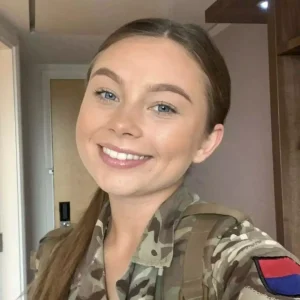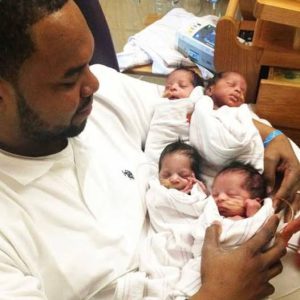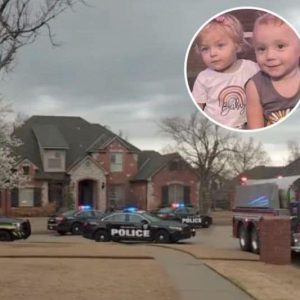The rain poured relentlessly as 78-year-old David stood outside what used to be his home, holding his two-year-old grandson, Noah, close to his chest. His heart ached as he watched the floodwaters swallow up everything he had built, leaving nothing but ruins behind.
“Dear Lord, give me strength,” he whispered, his voice breaking. “What should I do now?”
David had known hardship all his life. Raised in an orphanage, he had fought his way through struggles, built a home, and started a family. But fate had been cruel. His wife had passed away young, leaving him to raise their daughter alone. And now, the flood had taken her too—along with her husband—leaving only little Noah in David’s care.
The only reason Noah had survived was because of his cries. If David hadn’t heard them, if he hadn’t rushed to his grandson’s room in time, the boy might have been lost to the raging water as well.
The house had already begun to collapse when David reached Noah’s crib. Water seeped in through the walls, the ceiling groaned, and just as he pulled Noah into his arms, the roof caved in. By some miracle, they made it out before the house was completely destroyed.
His car, parked outside, was the only thing the flood hadn’t claimed. Clutching Noah close, David made a choice—he couldn’t stay in the town that had taken everything from him. With only a few bills in his wallet and nowhere else to go, he started driving, pushing through the torrential rain, hoping to find a new beginning.
David drove for hours through the stormy night, his hands trembling as exhaustion and grief weighed on him. His only thought was to get Noah to safety. When his gas meter dipped dangerously low, he spotted a small settlement up ahead and pulled over.
Noah’s cries grew louder—he was hungry, and David had no food, no milk, no idea where to find any. His only option was to ask for help.
With Noah in his arms, he knocked on the first door.
A woman answered, eyeing him suspiciously.
“Please,” David pleaded, “I need some milk for my grandson. We lost everything in the flood. We just need help.”
She scoffed. “I’m not running a charity. Find help somewhere else.”
Before he could say another word, she slammed the door in his face.
David knocked on another door. And another. Each time, he was turned away.
“That kid is crying like there won’t be another day!” one man shouted. “Go somewhere else!”
His heart shattered. Holding Noah close, he sat on the curb, rocking the child in his arms, whispering, “It’s going to be okay. We’ll find a way, I promise.” But even as he said it, doubt crept in.
Then, a gentle hand touched his shoulder.
Startled, David looked up to see a petite, middle-aged woman standing over him. Her eyes were filled with kindness.
“I haven’t seen you around before,” she said. “Are you new here?”
David’s eyes welled with tears. “Please,” he begged. “My grandson is hungry, and we have nowhere to go. We lost everything in the flood. Please don’t turn us away.”
The woman, Anna, didn’t hesitate. “Come with me,” she said softly.
Anna welcomed David and Noah into her home. She warmed up some milk and wrapped Noah in a dry blanket. Seeing David’s reluctance, she reassured him, “Stay as long as you need to. We’ll figure things out together.”
In the days that followed, Anna took care of them as if they were her own family. She worked on a small farm, and whatever she had—fresh milk, eggs, vegetables—she shared. She never once made David feel like a burden.
David, however, felt uneasy accepting her kindness. “I’ll find a job,” he insisted. “I don’t want to take advantage of you. We’ll move out as soon as I can afford a place.”
Then, one morning, something happened that left David speechless.
Anna handed him a set of keys.
“These are for you,” she said, smiling.
David frowned. “Keys? What do you mean?”
“It’s your new home.”
David’s hands trembled as he held the keys. “We’ve only known each other for a week. Why would you do something like this for a stranger?”
Anna smiled. “You and Noah deserve a fresh start. Some of the ladies in the neighborhood came together and pooled their money to buy you a house. Their husbands are builders, so it didn’t cost much. We believe in helping each other here.”
David’s eyes filled with tears. “I don’t know how to thank you. I—I don’t deserve this.”
“Yes, you do,” Anna said firmly. “Just promise me one thing—when life gives you the chance, pay it forward.”
David wiped his tears and nodded. “I will. I promise.”
Years passed, and David kept his word. He raised Noah with love and always reminded him of the kindness that had saved them. Anna became “Aunt Anna” to Noah, and as he grew older, he cared for her as though she were his own family.
When David passed away at 98, Noah kept his promise to his grandfather. He had moved to another town for work, but he made sure to visit Anna often. When she grew older and found herself alone, Noah returned with a proposal.
“Come live with me,” he told her. “You gave us a home when we had nothing. Let me do the same for you.”
Anna, who had never had a family of her own, was overwhelmed. “Are you sure? I don’t want to be a burden.”
Noah smiled. “You’re not a burden. You’re family.”
Tears welled in Anna’s eyes as she hugged him. “David would be so proud of you.”
“He taught me well,” Noah said. “And so did you.”
What can we learn from this story?
- Kindness doesn’t require wealth, just a willing heart. Anna didn’t have much, but she helped David and Noah when they needed it most. Years later, her kindness was repaid in an unexpected way.
- Never lose hope in difficult times. When David thought all was lost, Anna appeared in his life. Sometimes, help comes when we least expect it.
- The good we put into the world always finds its way back to us. Anna’s kindness gave David and Noah a new start, and in the end, Noah made sure she was never alone.
- Noah honored his grandfather’s promise, proving that true family isn’t always the one we are born into—it’s the one we choose through love and kindness.





